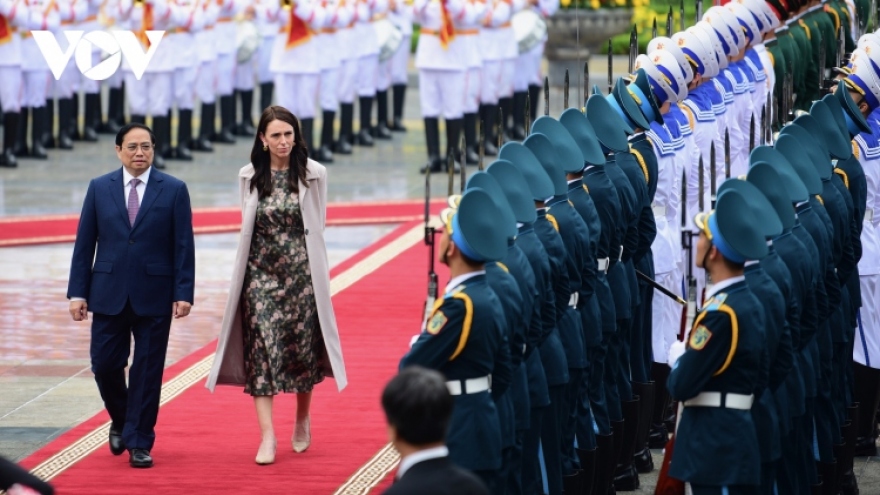They agreed that trade cooperation is a bright spot in the two countries’ relations, with two-way trade turnover last year rising 26.7% year on year to US$1.3 billion. The first nine months of 2022 alone saw trade exchanges between the two countries increase 13.6% to US$1.1 billion.
To meet the 2024 target, they agreed that Vietnam and New Zealand should maintain high-level reciprocal visit exchanges and effectively implement bilateral cooperation mechanisms, including an action programme to realise their strategic partnership for 2021-2024.
Ardern took the occasion to announce that New Zealand has decided to open its market for pomelos and lemons imported from Vietnam. She also affirmed New Zealand will continue to create favourable conditions for Vietnamese farm products to access the New Zealand market in the time ahead.
The two sides also vowed to work closely together to effectively implement regional free trade agreements to which the two countries are members, such as the Comprehensive and Progressive Agreement for Trans-Pacific Partnership (CPTPP) and the Regional Comprehensive Economic Partnership (RCEP), to help enhance cooperation and diversify supply chains.
Chinh affirmed the Vietnamese Government will create conditions and encourage New Zealand businesses to invest in Vietnam in areas where New Zealand has strengths and Vietnam is in high demand such as education and training, processing – manufacturing technology, agriculture, forestry, fishery and construction. He proposed that the government of New Zealand support and facilitate Vietnamese operations in the country.
The Vietnamese PM highly appreciated New Zealand’s provision of nearly NZ$27 million in development aid to Vietnam for 2022-2024, and suggested New Zealand continue ODA support for technical assistance projects in the fields of agriculture, climate change response, health care and innovation.
The two PMs consented to continue promoting cooperation in other fields, including education-training, tourism, aviation, culture, sports, labour, and agro-forestry-fishery. They highly appreciated the signing of cooperation agreements on education and civil aviation between the two countries during Ardern’s visit, and agreed to assign relevant ministries and agencies to study, negotiate and sign more cooperation agreements on tourism and culture.
(To be continued...)
